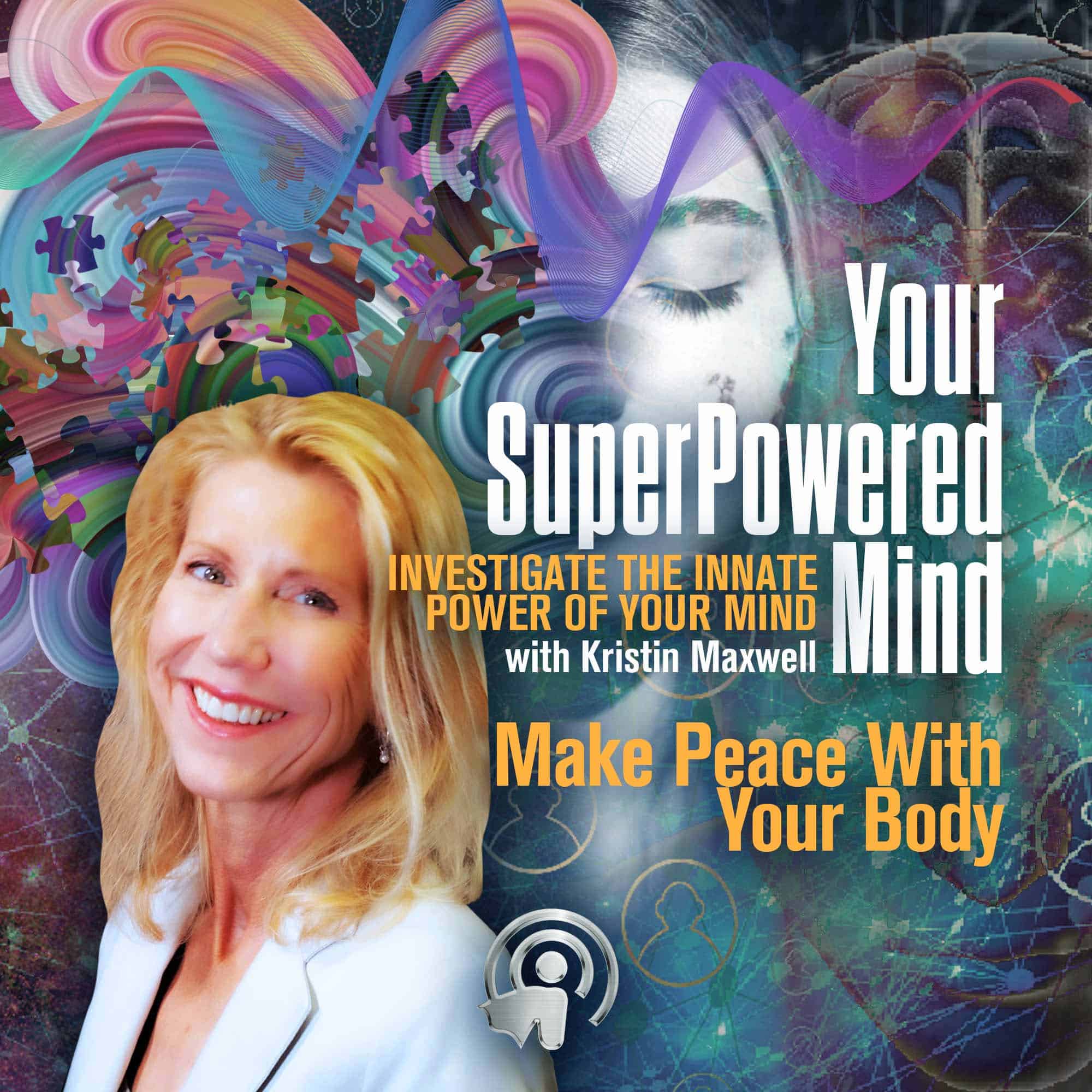
Make Peace With Your Body
How can you make peace with your body? In this episode of Your SuperPowered Mind, host Kristin Maxwell welcomes guest Dr. Carolyn Ross to the show. The two discuss how healing your body requires healing on a deeper level, how childhood trauma can impact decisions made with your body right now, understanding body image, and how to start changing your self image. Do you want to make and stay at peace with your body? Then this is the episode for you!
Kristin Maxwell:
Hello, everyone, welcome to Your SuperPowered Mind. I am Kristin Maxwell. And in this show we explore the process of transformation and give you tools and strategies that you can use to transform your own life. Today, I am excited to be talking to Dr. Carolyn Ross, about Make Peace With Your Body Weight. And Dr. Carolyn Ross is a nationally known expert in the field of eating disorders and integrative medicine. She is the author of a series of books on food addiction, emotional eating, and binge eating, binge eating. And she currently acts as CEO and coach for the anchor program, which is a proven treatment for food and body image issues. And I am excited to have Dr. Ross or Carolyn on my show, because weight and body image are something that culturally I think we we struggle with, and we’re aware of. And on a personal level, I see how it impacts so many people around me. And as the mother of three daughters, I can see how these kinds of issues are impacting our next generation. And whatever we can do to change the narrative around weight and body is going to help us all so I’m really excited to dig in to the work that Dr. Ross is doing. So welcome to Your SuperPowered Mind.
Dr. Carolyn Ross:
Thank you. Happy to be here.
Kristin Maxwell:
Yeah, thank you. And so my first question always is what superpower did you uncover in the process of mastering your mind?
Dr. Carolyn Ross:
Well, that’s a question that may be hard for me to answer. But I can say that, as a physician, the main, if you want to call it superpower or gift that I have is being able to really have presence with my patients, and to be able to listen in a way that helps me get a deeper understanding of where they’re coming from. I mean, you didn’t mention in my bio, but I work with people with food addictions and with substance use disorders. And most of them have a history of trauma. And so to be able to, you know, really listen in a way that that helps my patients trust me more and and feel comfortable opening up, enables me to, you know, gain information and help them heal from trauma, which is the underlying cause of most eating problems and substance problems.
Kristin Maxwell:
That’s very interesting, because that is definitely not how I would say we understand things typically. That that would that trauma could be related to how we feel in our bodies and how we treat our bodies.
Dr. Carolyn Ross:
Yeah, I think it’s really important to understand that, you know, for example, there’s a lot of research behind this. It’s not just a notion that I have or other providers have. Some over 20 years ago, the adverse childhood experiences study came out, which showed a very strong relationship with a high body mass index, and a history of trauma. It also showed an increased risk for substance use disorders, depression, anxiety, and over 40 medical conditions, including things that we don’t usually think are associated with trauma, like heart disease, diabetes, lung disease, cancer, all of those, the risk for those is much, much higher, if you’ve had, you know, increase episodes or increased trauma experiences. And when I say trauma, I’m talking about, you know, emotional, physical or sexual abuse, physical or emotional neglect.
Having a parent with a severe mental illness or substance use disorder, someone in your family being incarcerated, and also living in communities that that are traumatic, like living in communities where there’s a lot of violence, or where there’s high degree of poverty and hopelessness, and so on or being in a home where there’s domestic Violence. So when any of those factors, those traumatic or adverse experiences happen to you, before the age of 18, that increases your risk for having a high BMI. And then other studies have shown that other eating disorders, including anorexia and bulimia, are strongly associated with a history of traumatic experiences.
Kristin Maxwell:
That’s really interesting. And I have some questions I want to ask you about that. You know, and how we, but before we go into that, I am going to just take a quick break. Can you let people know just what your website is and we can go further in detail what’s there but what is the your website?
Dr. Carolyn Ross:
Its AnchorProgram.com.
Kristin Maxwell:
Great, and we’ll go deeper, more deeply into that and when we come back, we’ll go more into making peace with your body. Wait, hang on.
For the best listening experience, download the Superpower Network App
Podcast: Play in new window


